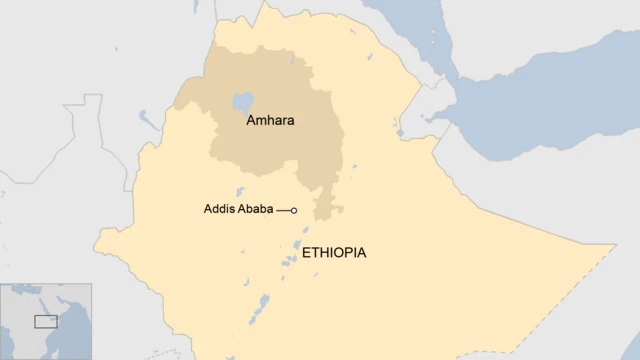Mass Ethiopia arrests after politician shot deadpublished at 11:03 BST 1 May 2023
Hanna Temauri
BBC News, Addis Ababa

Authorities in Ethiopia say they have detained 47 people - including journalists, activists and campaigners - for "executing a terrorist act" and attempting to overthrow the government in the northern regional state of Amhara.
The arrests come days after a senior official of Ethiopia's ruling Prosperity Party and his bodyguards were shot dead there. The alleged culprits, who were identified by Ethiopian security and intelligence agents, had already been jailed before the killings.
In its statement on Sunday, Ethiopia's federal joint task force disclosed the name of 11 more wanted suspects - including prominent politicians and journalists who are based inside and outside the country.
The federal government said it had to take "decisive measures" against "extremist forces" in the region - triggering fears that it could lead to yet another round of violence.
The killing of the Prosperity Party official came weeks after the federal government announced the dissolution of a paramilitary force which had prompted widespread protests and violence in the Amhara region.
Multiple individuals who were accused of plotting to kill senior government officials in four major cities, including the capital Addis Ababa, were also arrested at the beginning of last month.